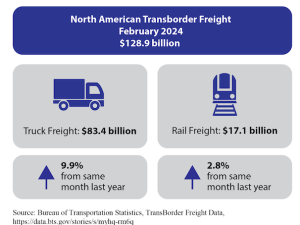The UAE has so far escaped pro-democracy protests that have toppled Egypt's and Tunisia's leaders and shaken autocratic regimes in nearby Bahrain, Oman and Yemen.
The rail company hopes to complete its 40 billion dirham ($10.9 billion) rail project in the next seven to eight years. The network, which will ultimately span up to 1,200 km (746 miles), would later link to planned regional lines.
Richard Bowker, chief executive of Etihad Rail, told Reuters three contracts for the first phase have been offered.
"There are three contracts which are out in the market for bid. They all relate to stage one of the railway, which is the 264 km line from Shah to Ruwais. The first and largest is for infrastructure, that is for civil works, tracks, communication systems and signals," he said late on Tuesday.
Bowker did not give the names of the bidding companies.
"In terms of identity of the bidders, it's quite a large group, over 20 groups. They are companies with experience in civil works, railways, construction works, both in the UAE and internationally," he said.
Etihad Rail, capitalised at 1 billion dirhams, is 70 percent owned by Abu Dhabi's government and 30 percent by the UAE federal government. It recently changed its name from Union Railway.
"We intend to make a decision and award the contract this summer, so that we can begin the mobilisation exercise and start construction later in the year. We are on a very tight schedule, but so far we have maintained the programme," he said.
The other two contracts were for locomotives and for wagons carrying sulphur, Bowker said.
The rail network will transport some 50 million tonnes of freight and 16 million passengers over the next 20 to 30 years. The first route will transport granulated sulphur from Shah and Habshan to Ruwais for export.
Bowker said a final decision on the financing for the projects had not yet been made. "We have done a lot of work, but we are just going through the process of discussing that internally."
The network will connect the UAE to Saudi Arabia via Ghweifat in the west and Oman via Al Ain in the east.
Freight trains will run at speeds of up to 120 kilometres per hour (kph) and passenger trains at speeds of up to 200 kph.
"We will have the first railway in operation 2013, beginning 2014, and from that point onwards the network will then expand. Anytime thereafter we could start put passenger services on. But priority at the moment is freight," Bowker said.
Extreme heat conditions and sand were the main technical challenges, he said.
The six Gulf Cooperation Council (GCC) members plan to spend more than $100 billion on a rail project linking them up by 2017, with long-range plans to extend the high-speed network as far as Yemen in the south of the Arabian Peninsula.
Asked about the impact of the regional unrest on the GCC railway project, he said: "As far as we are concerned at Etihad Rail, we are proceeding at full speed in the UAE, and also looking at the wider, longer-term plans to connect the GCC. We have not changed the approach."
The UAE, a federation of seven emirates headed by ruling families, is seen as less vulnerable than some neighbouring states to political unrest because of generous government spending programmes.
State media said in March the UAE would invest $1.6 billion on infrastructure in its less developed north, where citizens have benefited least from the capital Abu Dhabi's vast oil wealth and Dubai's trade and property fuelled development. (Reuters)








